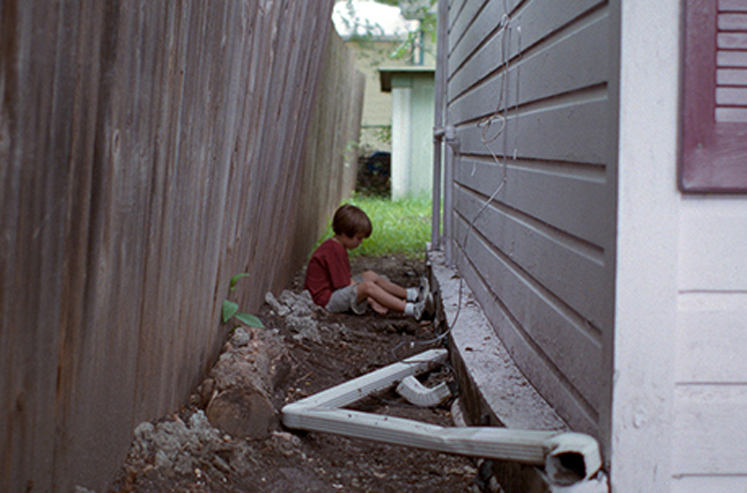It’s late Friday afternoon and I’m already learning the hard lesson of SXSW film: get to screenings early and prepare to spend most of the weekend standing in line. I’m waiting to get into The Desert, and Outside the Alamo Ritz, the Friday night crowds are starting to filter onto Sixth Street. There’s a trio of buskers dressed up like Depression-era hobos and banging away on a fiddle, an old accordion, and a drum with a cymbal attached to the top. The drummer has a goofy, dangling pirate-earing, and the fiddler puts his instrument down every so often to jump around and slap his ankles to the beat. He looks less like a folk musician and more like a Swiss yodeler who happened to step in a nest of fire ants.
This is Austin, and during South by Southwest, it’s easy for Austin to morph into an stereotype of itself. Later that night I’ll watch a girl in Doc Martins kick a black SUV for honking at her in the crosswalk. During a movie screening, a guy with a long handlebar mustache and no shoes sits next to me, crossing his legs – his hairy hobbit toes centimeters from my lap. All around town there are guys wearing ear-pieces hard-pitching strangers on content marketing strategies, women in smart looking suits hustling to meetings, and teenage girls in matching t-shirts handing out business cards branded with the logo of what will likely not be the next Twitter. Then there’s the guy in the Daft Punk-style LED disco ball helmet. He pops up on Sixth Street, then on Congress, then in the Convention Center, each time followed by a throng of minions in lavender t-shirts who try to convince everyone to sign up for some bizarre-sounding new ap that lets you “hire” and “fire” your friends. “It’s fun, it’s a game – wouldn’t you want lots of ‘hires?’” one of the t-shirts says to a middle aged woman waiting to get into a movie. “This is over-the-line invasion of privacy,” she gasps to a friend.
There’s a wild energy in the city, and during the first weekend of SXSW, the intensity seems stoked by the Interactive Conference, with its big name guests (Julian Assange, Edward Snowden, Chelsea Clinton, etc.) and its dozens of spin-off tech conferences, meetings, TED-like symposiums, and opportunities for deal making. My plans for the weekend, though, revolve entirely around movies, and one film in particular, Boyhood, Richard Linklater’s 12-years in the making film about growing up. Otherwise, I’m happy to just stumble into whatever films happen to be playing at any given time.

This strategy pays off right off the bat. Although I tend to avoid zombie films, my first film of the festival, The Desert, is something different. A claustrophobic, psychological slow-burner set in a burned-out Buenos Aires, in an opening flash we hear the horrid snarl of the monster followed by a quick glimpse of a body-strewn street. But that’s all we see of the zombie apocalypse. Instead, director Christoph Behl keeps us cooped up with the three characters, two guys and a girl, unfolding a kind of Jules and Jim update driven by the passive aggressive sexual sparing of the two men over the woman, who appears to need the playful frivolity of one man, and the hard-worn poetic intensity of the other. The three play games, create roles, and use a camcorder to document their memories, but a betrayal of trust disrupts the uneasy truce between the lovers. The Desert explores voyeuristic infatuation and strained emotional connections exasperated by physical isolation. It is a movie that feels less indebted to George Romero than to Francois Truffaut and early Atom Egoyan. And Behl’s heavy and relentless visual tone make him a talent I would like to keep an eye on.
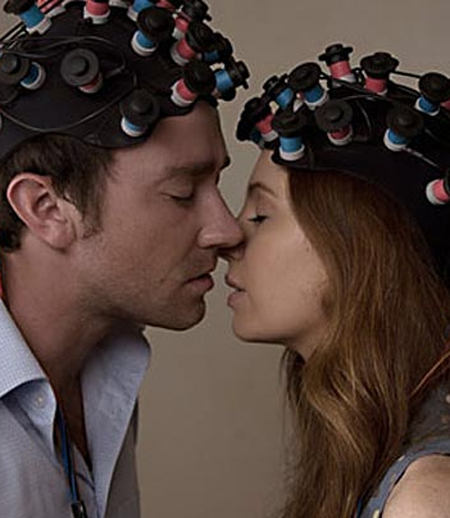
When the film lets out after the director Q&A, I notice the difficulty with SXSW’s film programing. You need to arrive around an hour before the start of a movie if you hope to get a seat, and so the way the films are staggered makes it difficult to hit two movies right after each other. After The Desert, my only real option was to head over to the Stateside for the world premiere of Hugh Sullivan’s The Infinite Man, a movie that sounds pretty awful on paper. It’s about a guy uses a time machine to win back his girlfriend, and for the first third of the film, I hate it. The dialogue is clunky and canned; the characters are cartoonish, grating, and unbelievable. The film’s time travel scenario (its conceptual framework is plucked from Shane Carruth’s Primer) really just sets up a tidy metaphor about encountering pass selves and learning how to outwit one’s own emotional childishness. But then something happens. Sullivan’s quirky, Australian humor is unrelenting, and the heavier he lays on his tired plot, the more it comes off as dramatic irreverence. By the end, the movie’s streak of absurdity manages to pluck something sweet and endearing from what otherwise feels contrived.
—
It’s Saturday, and it’s raining, only drizzling at first, but by the time I’ve glided halfway down Rio Grande on a bike, the sleeves of my jacket are nearly soaked through. The weather will dominate much of the line conversations, as Brits, Bostonians, and other travelers from inclement regions kvetch about Texas’ meteorological fickleness. But SXSW film is a fairly compact affair if you stay away from the satellite theaters, and the drizzle and mist provides a warm and comforting setting for a day of movie watching.
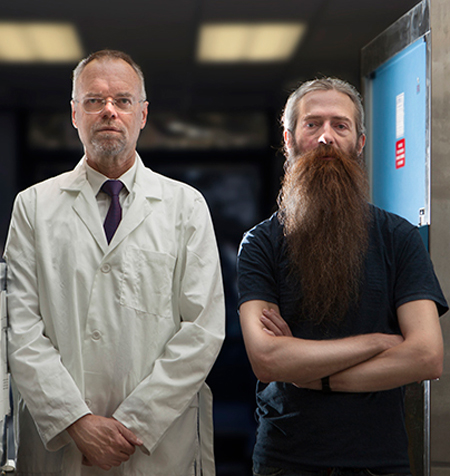
First up is The Immortalists, a film about two scientists who are trying to “cure” humanity of aging. It’s a movie I was looking forward to leading into the festival, but it turns out to be an odd doc, less concerned with the science involved with ending aging than telling the story of the two characters whose dedication to the project seems eccentric, if not extreme. I’m not sure if it’s the right approach. We’re left with only a scant grasp on the science, and so we’re not sure whether or not these guys are quacks or cracks – prophets or freaks. More problematically, the subject of immortality reeks with potential ethical and moral implications, from over population to economic destitution to whatever psychological fallout may occur. But these issues, like the science, are glossed over, and instead we just get a story of the obstinate perseverance of conflicted and contradictory protagonists.
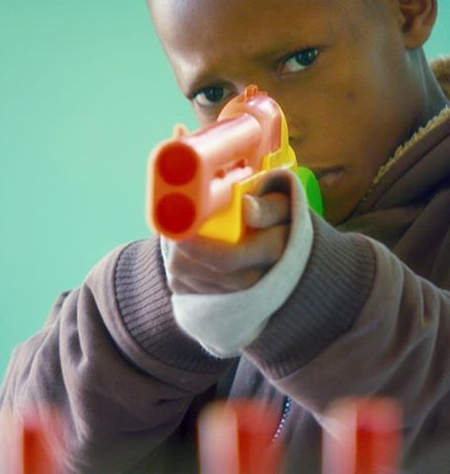
The Immortalists fell short of expectations, but the second documentary of the day greatly exceeded them. Song From the Forest is German journalist Michael Obert’s film about American Louis Sarno, whose love of the music of the tribal people of the Central African Republic eventual led him to live in the rainforest, marrying a local woman, fathering a child, and living the better part of thirty years in between the extreme primitivism of the jungle and the high-octane world of New York City. The film follows Louis as he takes his young son on a trip to New York, prompting one of the numerous cultural collisions captured in the movie. Louis loses his grip on his connection to the rainforest community as well as his American friends and family; the tribe is threatened by the environmental destruction of the rainforest and the political tension that pushes in on the isolated community. Obert uses music masterfully, blending Louis’s love of renaissance polyphony and the tribal chants, to evoke a sense of mystery and meaning in his jungle setting. And Obert’s light touch allows the film’s many themes to linger and ferment long after the credits role. It’s a movie that really deserves broad, theatrical distribution.
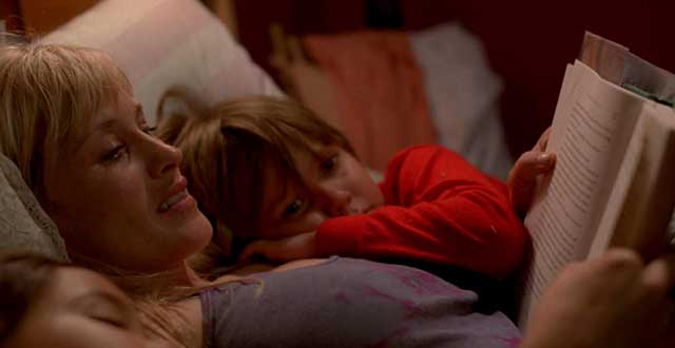
The timing of the Sunday morning screening of Boyhood is exacerbated by daylight savings, which makes the 10:30 a.m. start time effectively 9:30 a.m., and puts the time to show up for the line around 8:30 a.m. It’s not easy after a night that ended at some early morning hour at The White Horse in East Austin and a subsequent bike ride through the rain and up the hills to the apartment where I’m staying. But it is Boyhood, and there’s no way I’m missing it.
Richard Linklater’s new film was made with a cast that gathered once a year to shoot for a few days. It follows six-year-old Mason (Ellar Coltrane) as he progresses from first through twelfth grade. As the years tick by, life changes dramatically. First there’s a move to Houston, then there’s his mom’s new husbands, step siblings, new schools, new friends, first girlfriends, overbearing stepfathers, alcoholism, abuse, sexual adventures, discovered inspirations, artistic inclinations, and all the regular stuff of life. The central relationships involve Mason and his biological father, Mason Sr. (Ethan Hawke), who left his young wife when they were in their early 20s, and returns at the start of the film, a little grown up and eager to embrace the fatherhood he ran away from. We also watch Mason’s mother Olivia (Patricia Arquette) as she struggles through life as a single mother, tumbling through bad relationships, protecting her kids from her bad decisions, going back to school, and fighting to keep her life from spiraling away from her.
In one of the most moving moments of an emotionally-dense movie, Olivia breaks down. “I thought there would be more than this,” she says of life in general. It is a sentiment echoed by a number of the other characters, as well as Linklater himself, whose seems to merely present life plainly, knowing that the active forces of his cinematic process – time, aging, change, and maturation – will drive the ordinary into the realm of art. Boyhood is a unique kind of art, and it feels like the masterwork of a Texan, stoner Proust. It has no equivalent in terms of concept, though it is reminiscent of a diversity of films, like the British documentary “Up Series,” Franciois Trauffaut’s Antoine Doniel cycle, and Marco Tullio Giordana’s The Best of Youth.
During the Q&A an audience member says that after watching Boyhood she feels like she doesn’t want to watch anything else for the duration of the festival. I share the sentiment. Boyhood is such a thorough, engrossing, and moving experience — you can’t shake it. To sit in the audience at SXSW is to feel like you are at the unveiling of the newest entry into the cinematic canon. And even though the film has been shown at Berlin and Sundance, Ellar Coltrane admits when he imagined seeing the fruits of his young life’s labor, he always pictured the film playing in the Paramount. It’s a homecoming for all the cast and crew, and it is difficult to imagine having a more moving and memorable cinematic experience this year.
—
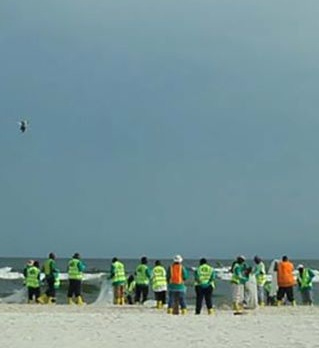
I almost wish I could just sit in the Paramount and watch Boyhood again, but after a desperate attempt to find some food after the nearly three hour epic, I’m back in line outside the Stateside. The second film of the day is another one I was looking forward to from before the festival, Margaret Brown’s The Great Invisible, which would end up winning the SXSW award for the best documentary (for all the SXSW winners go here). The doc tells the story of the BP oil spill in the Gulf of Mexico, tracking the damage through the stories of a handful of characters, two workers on the Deepwater Horizon, and an older Alabama man helping to galvanize his community’s response. The most intriguing scenes are the ones Brown captures between top oil execs, who literally chomp cigars as they pontificate about the industry and the world’s problems. Brown’s film is often visually stunning, and it succeeds in its candidness and its ability to portray broad economic, environmental, and political issues on a human scale. But there’s an aspect of her film that feels confused and unsettled. We don’t get as deep a portrait of the lingering devastation as the film Dirty Energy provided, and we don’t quite know what Brown seems to be advocating for, though title cards at the end of the film suggest that she is pushing us towards taking up some sense of advocacy. When a question during the Q&A asks Brown flat-out what she wants us to take away from her movie, it is a sincere request for clarification, a symptom of the film’s thematic and narrative murkiness.

The day is rounded out by two features that couldn’t be more different. Animals is the first film from Collin Schiffli, and it tells a love story between two young heroin addicts who are living out of their car and running scams and petty thefts to score cash. Schiffli handles his subject matter deftly, and while it’s a story we’ve seen many times before and stumbles a bit in its construction, the film possesses an emotional sincerity and a visual sensitivity that makes these characters resonate. David Dastmalchian, who wrote the film, turns in a strong performance in the lead role, and he is awarded with a special jury prize. The second film is called The Mule, a wild, Australian crime thriller about a down-and-out loser who lives with his mother and his coerced by a thuggish childhood friend to help smuggle heroin into the country from Thailand. He reluctantly complies, and then gets caught. We spend most of the movie holed-up in a hotel room, where the man holds out against a slew of bullies, from thuggish cops to murderous drug dealers. It’s a gut-wrenching, high-energy, well-acted, and often excruciating thrill-ride reminiscent of Guy Richie that deserves heavy booking on the midnight circuit.
The Mule is raucous enough, but the highlight came during the Q&A, when three obnoxious Aussies stumbled onto the stage and declared their insobriety. From there, they fielded questions and then heckled the questioners, swore, cracked jokes, cajoled each other to do push-ups, and poked fun at the moderator, filmmaker Clay Lifford. Lifford is the director of Wuss, a film produced by some of the partners who own Oak Cliff’s Texas Theater. “You may remember Clay’s film Wuss, which played a few years ago here,” said The Mule’s actor and co-executive producer Leigh Whannell. “It bombed.”
The Q&A was at times hilarious, and at times uncomfortable, but all the same, it was perfectly SXSW.


